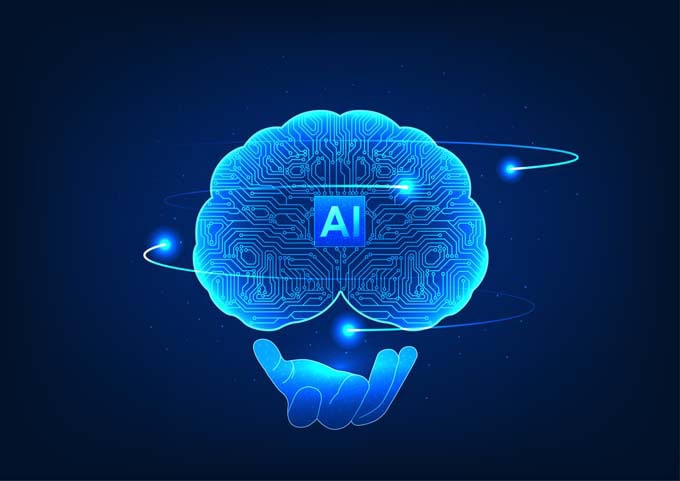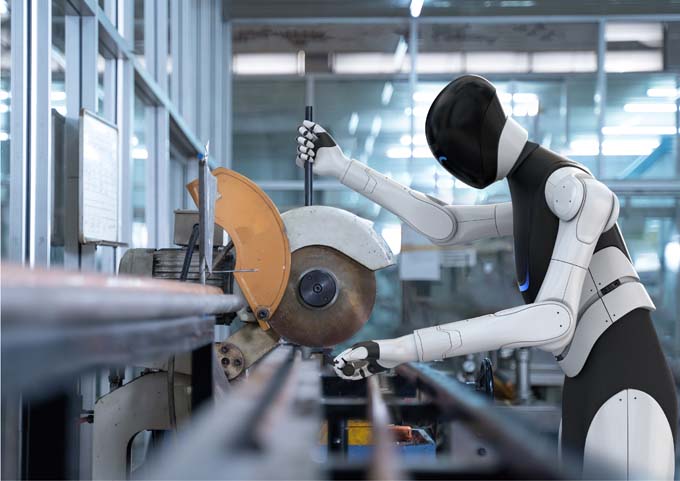Confidence in AI high in Switzerland, but public does not recognize daily use
According to a new survey by Equinix, a global digital infrastructure company, people in Switzerland use artificial intelligence on a daily basis without realizing it. In fact, only 38 % of Swiss respondents say they use this technology on a daily basis.

From everyday applications such as Google searches and health trackers to the invisible benefits in drug research or pension planning: AI is already firmly anchored in our everyday lives. The majority of Swiss respondents are convinced that they understand how AI works (67 %), but only 38 % state that they use AI-supported services or applications on a daily basis. 12 % even say they never use them, revealing a clear knowledge gap in public understanding of this emerging technology.
AI as the most rapidly accepted new technology
The survey, which includes insights from 6,000 respondents from Switzerland, Finland, Germany, Spain, Sweden and the UK, found that a surprising 77 % of people in this region have no concerns about the increasing importance of artificial intelligence in society. In Switzerland, the figure is as high as 82 %. In fact, two thirds of local people already have confidence in AI. Compared to the initial trust levels of previous innovations such as the internet or the cell phone, this suggests that AI will be the most rapidly accepted new technology in modern history.
Bruce Owen, EMEA President, Equinix states: "AI is already in your pocket, on your wrist and in your inbox, but this data shows that most people are not aware of it. If we want to realize the true potential of AI, we need to better understand how we are already using it. Innovation starts with education."
Improve understanding
Historically, every major innovation has been fraught with uncertainty and misunderstanding, from the advent of the internet to the cell phones we now take with us everywhere. Yet all these technologies have become an essential part of how we live and work. They have triggered tremendous innovation and impact in important areas of society such as communications, healthcare, entertainment and more.
With consumer confidence in AI already exceeding and bucking historical trends, the data points to an opportunity for a new era of innovation. To realize this potential, it is now essential to improve our understanding of what AI is, how it works and what it is already doing for us.
Has the age of intelligence dawned?
Other important results of the survey show:
- Over half of respondents in EMEA (56 %) are convinced that they understand how AI works. In Switzerland, this proportion is even higher: 67 % of respondents have confidence in this technology.
- Confidence varies greatly between age groups: 72 % (CH: 73 %) of under 35-year-olds are confident, compared to only 41 % of over 55-year-olds. In Switzerland, this age difference is less pronounced: 57 % of over 55s say they have confidence in technology.
- There is a clear difference between the genders: 62 % of men say they have confidence in AI, compared to only 50 % of women. The figures for Switzerland show greater confidence: 71 % of men said they had confidence, compared to 63 % of female respondents.
- 4 out of 5 (77 %) users in the EMEA region have no concerns or fears about the growing role of AI in society. The Swiss are even more positive about the technology: 82 % say they have no fears or concerns.
- Only a third (33 %) of users in the EMEA region state that they use AI-supported services or applications on a daily basis. In Switzerland, this figure is 38 %, with a quarter (25 %) in both Switzerland and the EMEA region stating that they deliberately use AI several times a week.
The "age of intelligence" has dawned, says Equinix. AI plays a key role in this. But AI does not exist in isolation. Distributed AI is already redefining entire industries, accelerating discovery and opening up endless possibilities. However, innovation can only flourish if the public is better informed so that the technology is accessible, accepted and can be used efficiently on a large scale. "AI platforms can now develop drug molecules that reach the clinical trial phase in less than 18 months rather than several years," explains Bruce Owen. "They enable smart thermostats to learn daily routines and the carbon intensity of the grid to save energy and costs, and they can even improve food quality by optimizing production processes and reducing waste."
Data centers as a basis
With over 120 data centers in the EMEA region, Equinix provides the foundation for AI and the benefits it can bring to society. A secure, networked, low-latency infrastructure enables AI to reach its full potential. To further drive progress, Equinix recently launched a global AI Proving Ground, providing a dynamic environment for organizations to collaborate with leading AI technology partners, test joint solutions, reduce risk and accelerate time to market. "Without the infrastructure that connects all of this, these advances would not be possible. At Equinix, we connect people around the world, but connection alone is not enough. Trust without true understanding risks slowing adoption and limiting AI's potential to transform healthcare, business and society. Now is the time for governments and industry to prioritize AI education alongside infrastructure development so that innovation is embraced with clarity, not confusion," concludes Bruce Owen.
Source: Equinix
This article originally appeared on m-q.ch - https://www.m-q.ch/de/vertrauen-in-ki-in-der-schweiz-hoch-aber-oeffentlichkeit-erkennt-taeglichen-einsatz-nicht/









